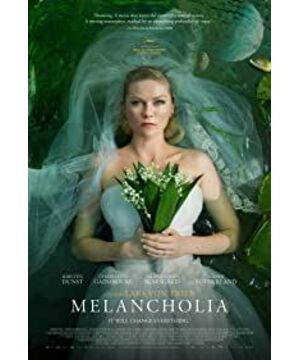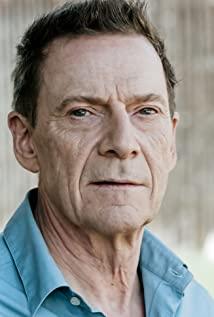I think both parts are really focused on Justine, the depressive. The audience may not understand her inexplicable sadness, vexatiousness, and even crazy derailment at the wedding, but they can definitely feel the despair and panic of people when the apocalypse comes - some people cry, some people collapse, and some people commit suicide. This is exactly the portrayal of patients with severe depression. In their eyes, every day seems to be the end of the world. In this state, how can there be anything worthy of joy? Therefore, the second part is to use a method similar to synaesthesia to make the audience feel the same, and enter the inner world of the depression patient. How to save? Justine tried to talk to someone many times at the wedding, and built a symbolic hut for her relatives at the end of the day, perhaps implying that communication and love are the best medicine.
In the director's interview, I also saw the director's new explanation of the film: He said that Melancholia was summoned by Justine, because the melancholia had a desire for disaster, and in ancient times they were considered to have prophets able person. This presumably explains her unusually calm, even return-like behavior (like being naked under the stars) when the apocalypse comes.
This blue-tempered alternative film comes from the famous Danish director Lars von Trier (Lars von Trier). He had a phobia of flying since he was a child, and he also suffered from depression. He naturally portrayed the psychology of such patients in detail. In fact, although Denmark is known as the "happiest country" and has the most advanced welfare system, the incidence of depression and suicide rates here are among the highest in the world. Therefore, it is very interesting in itself to be filmed by a Danish director.
The role of Justine was originally tailored by the director for Penélope Cruz, but due to scheduling problems, Kirsten Dunst was found as a backup. The former child star's acting skills and personality have exploded this time, and coupled with her breasts, she finally won her first heavyweight award in her life before the age of 30 - Cannes Actress. After all, this is the third time that Lars has won the Cannes Best Actress. But I am afraid there will be no next time, because he himself was banned by the organizing committee on the spot for inappropriate remarks. Regarding this matter, I have to say, I sympathize with him. After staying in Denmark for two years, I deeply feel that the Danish humour of the Danes is indeed not understood by everyone. Some people I know even have some "joking obsessive-compulsive disorder", as if every sentence has to be funny. In this case, inappropriate jokes are inevitable at times, and most Danes don't care. At least I believe that Lars is not malicious, otherwise he would not have made many movies full of humanity.
View more about Melancholia reviews











